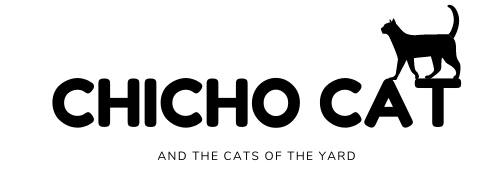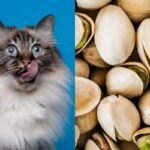Cats, with their enigmatic personalities and unique dietary preferences, often leave their human companions wondering about the suitability of various foods for their furry friends. Among the myriad questions that arise, one common query is whether cats can safely eat peanuts. Peanuts, in their raw and unprocessed form, are not inherently toxic to cats. However, they pose several potential risks and considerations and we will discover them below.
Can cats eat boiled peanuts?
Boiled peanuts, a popular snack in certain regions, are cooked in such a way that softens the nut and imbues it with flavors from the boiling liquid. Peanuts are relatively high in fat and protein (cheese too), which are essential components of a cat’s diet. However, they also contain carbohydrates, which cats do not require in large quantities. Boiled peanuts may contain high levels of sodium, which can be detrimental to a cat’s health.

Excessive sodium intake can lead to dehydration, electrolyte imbalances, and kidney problems. It’s crucial to opt for unsalted boiled peanuts if considering offering them to your cat. While boiled peanuts are softer and easier to chew than raw peanuts, they still pose a risk of causing digestive issues, especially if consumed in large quantities or by cats with pre-existing digestive sensitivities.
Can cats eat salted peanuts?
Salted peanuts is a popular snack among humans (check a list about human foods cats may eat), but the salt content and potential additives warrant scrutiny. Ingesting large quantities of salted peanuts or salty foods can lead to salt poisoning, also known as hypernatremia, in cats. Symptoms of salt poisoning include excessive thirst, lethargy, vomiting, diarrhea, tremors, seizures, and in severe cases, death (read more about symptoms that betray cats suffer from some (minor or major) illness). Salt poisoning requires immediate veterinary attention to prevent serious complications.

Can cats eat honey roasted peanuts?
Honey roasted peanuts is the procedure of coating the nuts in honey and then roasting them to enhance flavor. Are the ingredients and preparation method of honey roasted peanuts dangerous for cats? The primary concern with honey roasted peanuts for cats is their high sugar content. Cats have limited ability to process carbohydrates. Furthermore, high sugar levels can disrupt a cat’s metabolism and contribute to the development of diabetes over time.
While honey is a natural sweetener enjoyed by humans, contain botulinum spores, which are harmless to adult humans but can be harmful to infants and animals with underdeveloped immune systems, such as kittens. Additionally, some cats may be allergic to honey or to nuts, and may exhibit symptoms such as itching, skin inflammation, or gastrointestinal distress.
Can cats eat roasted peanuts?
With proper care and consideration, roasted peanuts are not harmful. Roasted peanuts are small,crunchy, flavorful and hard and there is fear of choking, particularly for cats who may not thoroughly chew their food before swallowing. Accidentally inhaling or aspirating a peanut can lead to respiratory distress or obstruction of the airway. If you choose to offer roasted peanuts to your cat, it’s crucial to do so in moderation and under supervision. Start with a small amount and monitor your cat’s response closely

Can cats eat peanuts butter?
Peanut butter is a creamy spread made from ground peanuts, often enriched with oils and sweeteners. Peanut butter is high in fat, protein, carbohydrates and sugars, which cats do not require in large quantities. Some varieties of peanut butter may contain xylitol, a sugar substitute used to sweeten foods. Xylitol is highly toxic to cats and can cause a rapid release of insulin, leading to hypoglycemia (low blood sugar), seizures, and liver failure. It’s crucial to select peanut butter products that do not contain xylitol and to check ingredient labels carefully.
Can cats eat raw peanuts?
Raw peanuts are uncooked nuts harvested from peanut plants. Peanuts are susceptible to aflatoxin contamination, a type of mold that produces toxins harmful to both humans and animals. While stringent regulations are in place to minimize aflatoxin levels in commercially sold peanuts, there is still a risk of contamination in raw peanuts obtained from less regulated sources. There are recommendations for suitable treats and alternative snacks that align with your cat’s nutritional requirements and preferences.

Can cats eat dry roasted peanuts?
Dry roasted peanuts mean no addition of oil or salt, resulting in a crunchy texture and intensified flavor. Moderation is key when offering dry roasted peanuts to cats to avoid potential digestive upset or weight gain. While dry roasted peanuts may seem like a tempting snack, pet owners should exercise caution when offering them to their cats.
In conclusion, while cats may display curiosity about peanuts, it’s essential to prioritize their health and well-being by carefully considering the potential risks and benefits. When it comes to feline nutrition, sticking to a diet tailored to their specific dietary requirements is the safest and most responsible approach. When in doubt, consult with your veterinarian for personalized guidance.








